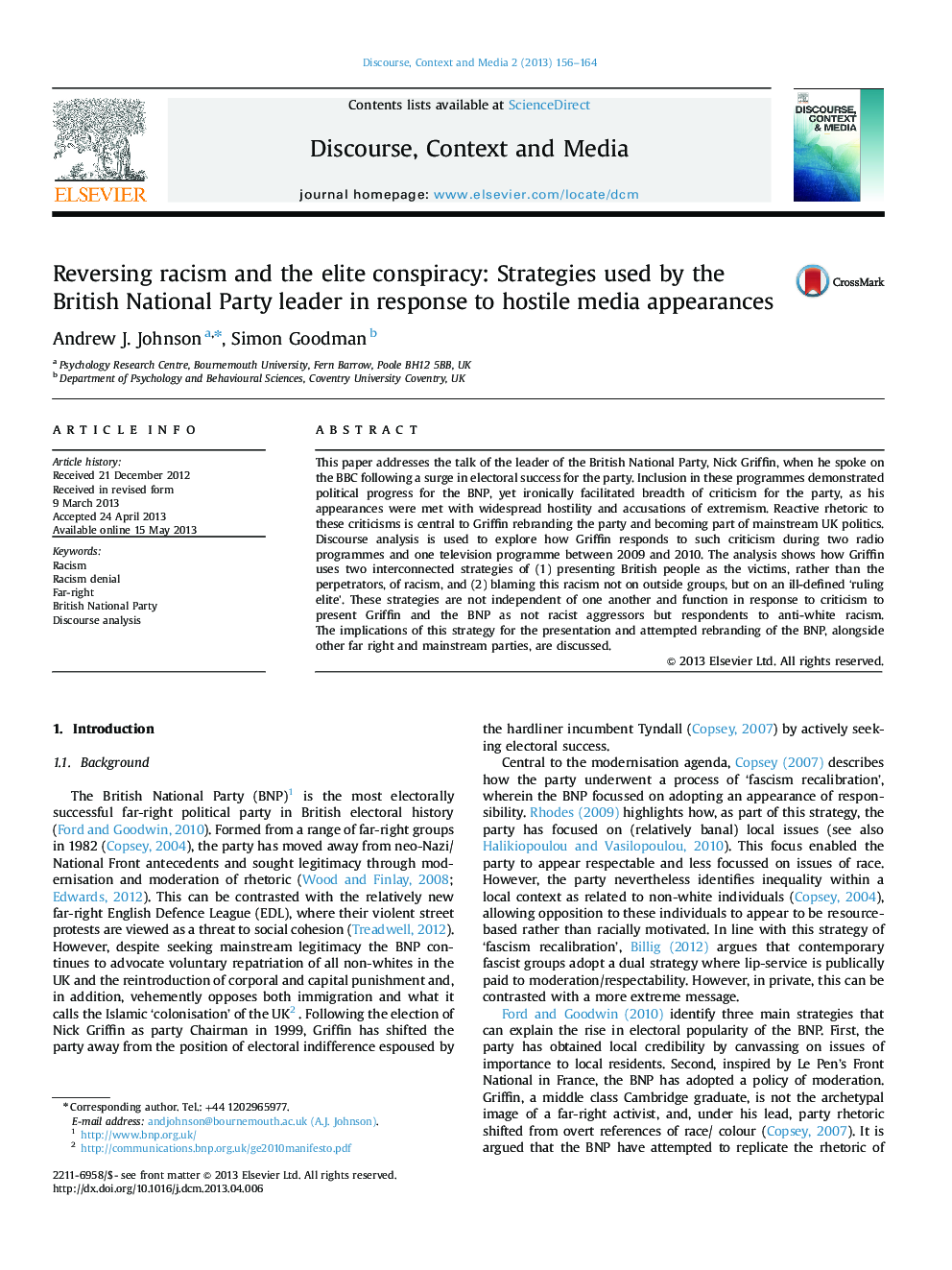| Article ID | Journal | Published Year | Pages | File Type |
|---|---|---|---|---|
| 1100527 | Discourse, Context & Media | 2013 | 9 Pages |
•We analyse BBC media appearances of BNP leader Nick Griffin.•Discourse analysis is used to explore rhetorical strategies.•We argue Griffin employs two interconnected strategies.•First, Griffin presents British people as victims of racism.•Second, Griffin blames this anti-British racism on an ill-defined elite.
This paper addresses the talk of the leader of the British National Party, Nick Griffin, when he spoke on the BBC following a surge in electoral success for the party. Inclusion in these programmes demonstrated political progress for the BNP, yet ironically facilitated breadth of criticism for the party, as his appearances were met with widespread hostility and accusations of extremism. Reactive rhetoric to these criticisms is central to Griffin rebranding the party and becoming part of mainstream UK politics. Discourse analysis is used to explore how Griffin responds to such criticism during two radio programmes and one television programme between 2009 and 2010. The analysis shows how Griffin uses two interconnected strategies of (1) presenting British people as the victims, rather than the perpetrators, of racism, and (2) blaming this racism not on outside groups, but on an ill-defined ‘ruling elite’. These strategies are not independent of one another and function in response to criticism to present Griffin and the BNP as not racist aggressors but respondents to anti-white racism. The implications of this strategy for the presentation and attempted rebranding of the BNP, alongside other far right and mainstream parties, are discussed.
